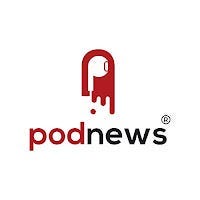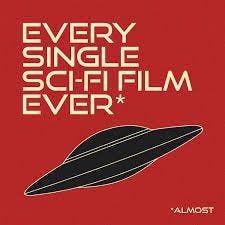How Can Podcast Discoverability Be Improved: The Ultimate Podcast Puzzle
We need a better way to find and discover podcasts -- especially indie podcasts.
There’s nothing on TV” is a common refrain despite our 400-channel universe. Of course, on TV we are subject to “bundles” which force us to consider channels on topics we have no interest in.
Radio has dials, buttons, or touchscreens. You go up the dials and back down for your music or other content. If you go to AM radio, you can listen to angry white men rant about wokeness, books that turn people gay, and the specter of socialism.
Books have libraries, Amazon, and independent bookstores.
Movies have theaters, streaming channels, and TV.
What about podcasts?
How do people find podcasts?
When you ask listeners (casual or superfan) that question, the answers typically revolve around a word-of-mouth recommendation from a friend, acquaintance, or family member, a podcast review site such as Bingeworthy, Great Pods, or Ear Worthy, or podcast newsletters like Podnews or EarBuds Podcast Collective.
Social media and podcast feeds (especially Apple) help listeners locate podcasts via a genre list, and legacy media are now much more likely to have a podcast review section.
Still, listeners will tell you that it’s not a seamless process. With so many quality podcasts, listeners experience FOMO (Fear Of Missing Out).
When you ask indie podcasters how listeners find their excellent podcasts, they express righteous indignation.
As one indie podcaster explained, “It’s so much worse than finding a needle in a haystack. It’s more like finding one needle among 1,000 haystacks.”
Podcast networks have the funds, resources, and connections to advertise their new podcasts. iHeart, for example, lets listeners know a new podcast is being released, especially in a genre in which you’ve shown past interest.
It’s good business that networks like iHeart advertise and market their podcasts. After all, the company has invested a significant amount of money to start and maintain the podcast. If it’s a celebrity, then an expensive contract has already been sealed in legal blood.
How about indie podcasters? After all, indie podcasters are in danger of being sidelined by the large podcast networks, even though indie podcasters are overwhelmingly responsible for creatively masterful podcasts.
Examples include: Another F*cking Horror Podcast, The White Vault, Surfing Corporate, Conspiracy She Wrote, Why Wars Happened.
Indie podcasters use social media, podcast marketing companies with modest budgets, and podcast review sites. It’s difficult to build listenership to a point where the podcast can: 1. cover its costs 2. make money for the indie podcaster 3. make so much money that the indie podcaster can quit their current job and do podcasting full-time.
Let’s examine some of the issues surrounding podcast discoverability.
First, there are tens of thousands of active podcasts. Forget the three million number. It’s the podcasts actively producing episodes that attract listeners. Podcast networks race each other to release more podcasts to capture more market share, while even non-podcast organizations like The Metropolitan Museum of Art (MOMA) have released stellar podcasts such as Immaterial.
Corporations now regularly release podcasts for employees and customers, such as The Message, which is a science fiction podcast in a journalistic style, where scientists work to decode extraterrestrial messages using real technology developed and sold by General Electric.
Then we have legacy print journalism companies like The New York Times. Their expanding roster of podcasts, now behind a paywall, oversaturates an already cluttered market.
Indie podcasters were the true pioneers of podcasting. They still are. Make no mistake: indie podcasters create and release many of the most innovative and creative shows in the industry. For example, Someone’s In Here is about poop. HVAC School Podcast from HVAC Tech Bryan Orr, an Orlando, FL-based HVAC professional, is a masterclass in a key profession. How about Don’t Do That Podcast, which slays “The Internet’s Wildest Myths?”
In too many cases, indie podcasters have decided that if one podcast doesn’t guarantee fame and fortune, seven might. Sure, some indie podcasters have multiple podcasts that offer value to a wide swath of listeners. An experienced podcaster like Danny Brown is so good that his podcasts either offer podcasters valuable tips, discuss key issues in the podcasting industry, or simply entertain like one of my favorites, Five Random Questions.
Sadly, there are not enough Danny Browns out there, and more aspirational podcasters who release shows almost identical to their primary show. There’s a woman in California with seven interview podcasts!
What’s the solution? Fewer podcasts? Okay, then, who or what cuts back? It’s like the Cold War missile crisis. No one wants to show weakness.
Do podcast networks trim their stable of podcasts? They risk being eclipsed by their rivals. How many true-crime and celebrity podcasts do we need?
Do indie podcasters risk getting pushed out completely by well-financed podcast networks by voluntarily limiting their podcast creation cycle?
Is there a solution to the escalating number of podcasts? Perhaps, the marketplace will have the last word and cull the number of podcasts unable to financially sustain themselves.
I doubt it.
Let’s turn to podcasting’s two distinctive attributes — low barrier to entry and a decentralized structure.
First, podcasting has a low financial and technological barrier to entry. By contrast, nobody’s making a $200 million sci-fi film on a whim. That accessibility has nourished podcasting with an unbounded cascade of fresh concepts, niche discoveries, and genre-bending concepts.
Second, podcasting is still a highly decentralized media outlet.
Those two attributes — low barrier to entry and decentralization — forecast little hope for a solution for the expansion of podcast content.
One beacon of hope is podcast journalists and evangelists like James Cridland from Podnews, who have been predicting this disaster for quite a while and have some good ideas on how to proceed.
Check out Sounds Profitable, especially their Articles and Research sections, for more on this podcast traffic apocalypse.
Moreover, the organizations and companies that either host podcasts for distribution or provide the avenue by which they are accessed are highly fragmented and decentralized. Check out any podcast feed or app and spend some time in their section, sometimes called EXPLORE / SEARCH.
You can search for podcasts via rankings like the top 100 or by genre. On the surface, genre sorting seems like a handy tool. But is it, really?
For most apps and podcast networks like Apple and Spotify, the genre categories are fairly sparse. For example, ARTS & CULTURE or SOCIETY & CULTURE seem to be the dumping ground for any podcast that is not easily classified.
How about a podcast like Another F*cking Horror Podcast? It’s a horror podcast, but also a true-crime podcast, and a comedy podcast. Where does it go? All three categories? Only it’s primary genre category?
Without endless whining here, it seems obvious that podcast apps and hosting companies need to do a much better job on genre classification.
What’s needed here is the kind of drill-down from genre to subclassifications, sometimes as many as five to seven levels deep.
I am a published author of ten books, with sales ranging from five to 4,000. I use Amazon, among other vendors. While I hate a lot about Amazon, the company has a robust and well-conceived drill-down for book categories.
For genres like Romance, Sci-Fi, Mystery, and Fantasy, you can go seven levels deep as a reader searching for a book and as an author, targeting your book like a heat-seeking missile. I stopped counting after 20 Romance sub-categories.
For example, I use Pocket Casts as my podcast app. I like the app and its interface. There are plenty of good ones out there. Anyway, Pocket Casts has 19 genre categories. Many of the other podcast apps have a similar number of genre categories.
To summarize, Amazon has more subcategories under ROMANCE NOVELS, just one of over 50 book genre categories, than most podcast apps for ALL podcast genres.
Let’s look at a superb indie podcast from the U.K. called Every Single Sci-Fi Film Ever by Ayesha Khan. Obviously, in most podcast apps, this podcast would appear in TV & Film or a similar category.
However, with a broader selection of genre subcategories, Every Single Sci-Fi Film Ever would show up in TV & Film, Science Fiction, and History. The chances of discovery by a browsing listener in that scenario are greatly increased.
Yes, podcasting exists in a decentralized, somewhat chaotic media universe. However, if the podcast feed companies Apple, Spotify, and YouTube (YouTube’s general search function SUCKS!) adopt a more detailed genre classification, podcast discovery should be improved.
Now, let’s switch to the internet. Talk about mess and lack of discoverability! The internet is chaotic, dangerous, confusing, and often cruel. The internet mirrors podcasting because it shares two of podcasting’s key attributes—low barrier to entry and decentralized structure. Starting a webpage is a snap compared to starting a podcast.
HOWEVER, the internet has a redeeming quality that keeps it organized.
It’s called The Internet Corporation for Assigned Names and Numbers, or ICANN.
ICANN is a non-profit organization that helps ensure the stable and secure operation of the internet by coordinating the maintenance and procedures of several databases related to the internet’s namespaces and numerical spaces. This includes the management of domain names and IP addresses, which are unique identifiers that allow computers to find each other on the internet.
How does ICANN fund itself? Through Registrar fees, a grant program fund that has amounted to $217 million as of June 30, 2023, and, of course, fees for generic top-level domain privileges.
In essence, ICANN is the bouncer at a trendy nightclub. No one gets inside unless ICANN says okay. It acts like the gatekeeper that has so far been absent in podcasting.
Call me naive, but podcasting needs a non-profit overseer organization like ICANN. Would RSS.Com be able to fill that role if it had a non-profit arm?
Anyway, this podcast oversight organization would fulfill these responsibilities:
1. Like top-level domains on the internet, this organization (Podcast Corporation Directory PCD) would maintain a list of every podcast, marking it as either active or inactive based on key criteria, such as number of episodes and last new episode.
Every new and existing podcast would be required to file a registration form and pay a nominal fee ($15) to be recorded in the organization’s podcast directory. Podcast networks (more than 10 active podcasts) would pay a supplemental fee.
For enforcement, all hosting companies would agree that no unlisted podcasts would be allowed to be distributed.
2. This PCD would create a directory that could be accessed by anyone searching for a podcast. The directory would be organized by genre with as many as 20 subcategories as a drill-down to fine-tune a podcast search. The directory would include video and audio podcasts.
Some podcasts would be listed in two or more categories or subcategories.
Final thoughts.
I’m not generally one for government regulation. Yet, this is more like voluntary regulation for the continued health of the podcasting industry. Think about the media industries that have cooperated for the continued welfare of that industry—movies, TV, radio, and even books.
Industry standards are defined as a set of guidelines and requirements that are generally accepted within an industry. They can relate to products, practices, or operations and are used to ensure security, interoperability, and quality.
Industries such as TV manufacturers, cable broadcasters, airlines, retailers, and thousands of other industries collaborate to improve quality, increase efficiency, improve the customer experience, and enhance interoperability.
Although the low barrier to entry and the subsequent torrent of podcasts, on the surface, appear to be the major sticking points to a more organized, customer-friendly, and more equitable industry, it’s the lack of an oversight organization with enough regulatory power to manage the podcasting industry that curbs the growth potential of the industry.
As the automobile industry struggled to transition from infancy to a mature business, Henry Ford once said of those efforts, “Coming together is a beginning, staying together is progress, and working together is success.”








